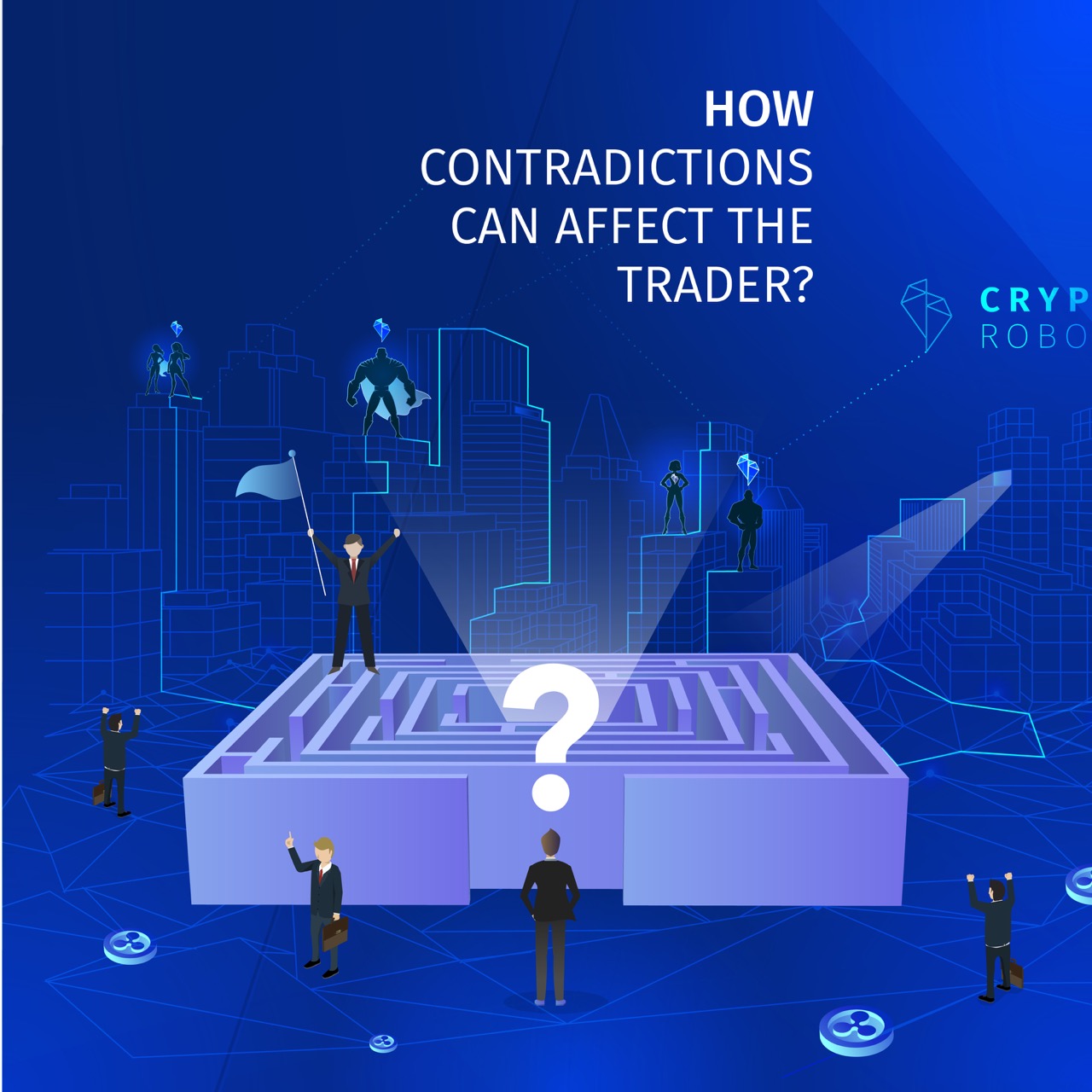How contradictions can affect the trader?

Hi there! Have you ever seemed to make the right decision on emotions, but after a while you regretted about it? That happens due to cognitive dissonance and emotional attachment.
Why traders make mistakes
A trader enters the bullish market, wants to sell coins but hesitates. Analysts state one point of view, your friends traders - the opposite one. On the one hand, everything is logical - coins are becoming more expensive, it is more profitable to sell. Or maybe the market will still grow, and I will catch the last train - buy it now and resell it later?
A trader has cognitive dissonance - when one truth contradicts another.
Eventually a trader decides to buy coins instead of selling them. This option is close to him emotionally because he hopes to get more profit. Under the influence of optimistic forecasts he buys coins until it is too late.
Psychologist Leon Festinger found out that between the two options a person chooses the one that is closer to him emotionally. 90% of bad predictions are based on emotions, not on facts so it’s easier to believe in them.
In fact, a trader decided to buy coins because of the emotional connection with crypto - he just doesn’t want to sell something now, realizing that later he can sell at a higher price.
Festinger compares the decision to buy more assets with the slaking a strong thirst. A trader is not aware that it’s enough until he becomes completely mad.
In the book “The Psychology of the Stock Market” David Cohen advises traders to:
- make decisions based on real forecasts, facts and figures;
- do not give in to speculative mania:
- less to believe optimistic forecasts based on assumptions and emotions.
As a proof, he cites the situation in the stock market with Dow Jones indices. In 1999, analysts predicted the growth of unprofitable Dow Jones indices to the level of 36 thousand within a year. In 2000, the indices rose to only 11 thousand, and immediately fell sharply to 10 thousand. Analysts ignored the facts, fearing to lose a large profit.
Try to trade taking lowest risks.
Good luck and profits!